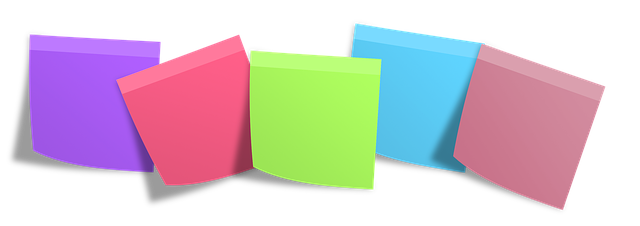Have you ever been amazed by the power of your own memory? That ability to transport you back in time and make you relive moments long gone? Whether it’s the scent of a childhood home or the sound of a familiar melody, memories have a way of resurfacing when we least expect them. But have you ever thought about the unique stories and experiences that lie within those memories? If you’re ready to explore the depths of your past and unleash the writer within, then brace yourself for an extraordinary journey using memory writing prompts. In this article, we’ll delve into the world of reflective narratives, uncovering the hidden treasures of our minds, and discovering the art of capturing them on paper. So, grab your notepad and get ready to dive into the fascinating world of memory writing prompts!
Contents
- What are Memory Writing Prompts?
- How Memory Writing Prompts Can Deepen Reflective Narratives
- The Benefits of Engaging with Memory Writing Prompts
- How to Use Memory Writing Prompts to Spark Reflective Writing
- Memory Writing Prompts for Reflective Writing
- Examples of Memory Writing Prompts to Get Started
- Tips for Crafting Compelling Reflective Narratives Using Memory Writing Prompts
- Enhancing Self-Reflection through Regular Memory Writing Practice
- Frequently Asked Questions
- In Conclusion
What are Memory Writing Prompts?
Memory writing prompts are thought-provoking cues designed to help you access and explore the depths of your memories. As human beings, our minds store a vast amount of experiences and emotions that shape who we are. These prompts serve as triggers, sparking our recollection and allowing us to delve into our past.
Whether you’re looking to preserve cherished moments, ignite your creativity, or simply explore your own personal narrative, memory writing prompts can be a valuable tool. They can help you unlock forgotten memories, unearth details long lost, and provide a space for self-reflection.
- Memory writing prompts encourage introspection and self-discovery.
- They offer an opportunity to explore personal anecdotes, moments of growth, or life-changing events.
- Using these prompts can enhance storytelling abilities and writing skills, allowing you to express yourself more vividly on paper.
So, whenever you feel stuck or want to embark on a journey through your own memories, try out these prompts. They can take various forms, ranging from questions about significant individuals in your life to nostalgic descriptions of special places. Let your memories flow and allow your writing to capture the essence of your experiences.
How Memory Writing Prompts Can Deepen Reflective Narratives
Memory writing prompts offer a powerful tool to enhance the depth and richness of your reflective narratives. By tapping into personal memories and experiences, these prompts encourage you to delve into the nuances of life, adding layers of authenticity and emotional connection to your writing. Whether you are a seasoned writer or just starting to explore the art of storytelling, memory prompts can ignite your creativity and bring your narratives to life.
One of the key benefits of using memory prompts is their ability to activate vivid details and sensory imagery. By prompting you to recall specific moments or emotions from your past, these prompts help you re-engage with your memories on a deeper level. As you write about these experiences, you naturally begin to incorporate sensory language, painting a more vivid picture for your readers. This not only creates a more engaging narrative but also allows your audience to better connect with your story on an emotional level.
Furthermore, memory prompts provide a framework for introspection and self-reflection. Through intentional writing exercises, you can explore the meaning and significance of past events, gaining new insights and understanding. When you revisit your memories and connect them to your current thoughts and emotions, you invite a deeper level of self-awareness and personal growth. Additionally, the act of writing about your memories can offer catharsis and healing, allowing you to process and make sense of challenging or transformative experiences.
Incorporating memory writing prompts into your writing practice can be a transformative experience. By accessing your personal memories and infusing them into your narratives, you can enrich your storytelling, uncover new perspectives, and foster self-growth. So, grab your pen, choose a memory prompt, and prepare to embark on a captivating journey of self-discovery through reflective narratives.
The Benefits of Engaging with Memory Writing Prompts
Memory writing prompts offer an incredible opportunity to unlock a treasure trove of forgotten memories and enrich our lives in numerous ways. Whether you’re seeking therapeutic benefits or a creative outlet, engaging with these prompts can bring about positive changes in your overall well-being. Here are some of the key advantages of incorporating memory writing prompts into your daily routine:
- Self-reflection and personal growth: Writing about our memories is a powerful tool for self-reflection. It allows us to revisit past experiences, analyze them from a new perspective, and gain insights into our own personal growth. Reflecting on our memories helps us better understand our emotions, behaviors, and thought processes.
- Preservation of personal history: Our memories make up the fabric of who we are. By engaging with memory writing prompts, we can capture our life stories, preserving them for future generations. These written accounts provide a valuable legacy that helps our loved ones understand the depth and richness of our lives.
- Improved mental well-being: Writing about memories has therapeutic benefits, aiding in the processing of emotions and stress reduction. Engaging with writing prompts can be cathartic, allowing us to release pent-up feelings and gain a sense of closure. Additionally, writing stimulates our cognitive functions, improving memory recall and overall mental acuity.
Incorporating memory writing prompts into your daily routine can be an enlightening and fulfilling experience. By delving into your past, you can uncover hidden facets of your identity, gain new perspectives, and find solace in revisiting long-forgotten experiences. So grab a pen, find a quiet space, and let the power of memory writing prompts guide you on a transformative journey of self-discovery and reflection!
How to Use Memory Writing Prompts to Spark Reflective Writing
Memory Writing Prompts for Reflective Writing
Reflective writing allows us to explore our memories, thoughts, and experiences in a meaningful way. It enables us to gain insights, process emotions, and gain a deeper understanding of ourselves. Memory writing prompts can be a powerful tool to ignite this reflective process. Here are some tips on how to effectively use memory writing prompts to spark your reflective writing:
- Select meaningful prompts: Choose memory writing prompts that resonate with you personally. Whether it’s a specific event, a significant person, or a place that holds special memories, pick prompts that evoke emotions and offer opportunities for self-reflection.
- Create a safe and comfortable writing space: Find a quiet place where you can write without distractions. Make sure you have a comfortable chair, good lighting, and all the tools you need to jot down your thoughts. Creating a cozy and relaxed writing environment can help you delve deeper into your reflections.
- Set aside dedicated time: Reflective writing requires time and focus. Dedicate a specific time slot each day or week to engage in this practice. Whether it’s early morning when your mind is fresh or before bed when you can unwind, find a time that works best for you, and stick to it.
By using memory writing prompts, we embark on a journey of self-discovery, enabling us to gain insights, find closure, and even heal emotional wounds. Reflective writing serves as a medium to express ourselves, understand our experiences better, and ultimately grow as individuals. So, grab your pen and paper, or open up a blank document, and let your memories guide you towards a deeper level of self-reflection and understanding.
Examples of Memory Writing Prompts to Get Started
Memory writing is a powerful tool that helps us revisit our past experiences and create a meaningful narrative. If you’re looking to get started with memory writing, here are some unique and creative prompts to spark your imagination:
- A Childhood Adventure: Recall an exciting adventure from your childhood. Describe the sights, sounds, and emotions you experienced during this memorable moment.
- A Special Relationship: Write about a person who has had a significant impact on your life. Share anecdotes, experiences, and lessons learned from this unique relationship.
- A Place of Solitude: Take yourself back to a place where you found peace and tranquility. Describe the setting, the sensations it evoked, and the emotions you felt in that moment.
Furthermore, you can explore writing prompts like:
- A Life-Changing Decision: Reflect on a decision that altered the course of your life. Explain the factors that influenced your choice and how it has shaped you into the person you are today.
- A Hilarious Mishap: Recount a funny incident from your life that still brings a smile to your face. Share the details, the unexpected twists, and the comedic value of this unforgettable event.
- A Lesson from Nature: Connect with the natural world and recount a moment where you learned a valuable lesson from the elements around you. Describe the setting, the lesson learned, and how it impacted your perspective.
These prompts are meant to ignite your memory and unlock a treasure trove of stories within. Remember, every memory holds significance, no matter how small or insignificant it may seem at first glance. Happy writing!
Tips for Crafting Compelling Reflective Narratives Using Memory Writing Prompts
Reflective narratives can be powerful tools for self-reflection and personal growth. By using memory writing prompts, you can tap into your past experiences and delve deep into cherished memories or significant events. Here are some tips to help you craft compelling narratives that will captivate your readers and evoke genuine emotions:
1. Identify a memorable prompt: The first step is to choose a memory writing prompt that resonates with you. It could be a specific question about a significant milestone, a challenging moment, or a joyful memory. Select a prompt that sparks your interest and ignites your passion to explore further.
2. Bring your memory to life: Once you’ve selected a memory prompt, it’s time to immerse your readers in the experience. Use descriptive language to paint a vivid picture and engage their senses. You want your readers to feel like they are present in the moment with you. Be specific and precise in your descriptions, focusing on sights, sounds, smells, and even the way you felt physically and emotionally.
3. Reflect on the significance: A compelling reflective narrative goes beyond simply recounting an event; it dives into the deeper meaning behind it. Take the time to reflect on how this memory has impacted your life, changed your perspective, or influenced your decisions. Share your insights and lessons learned, allowing your readers to connect with your personal growth journey.
4. Be honest and vulnerable: Authenticity is key when crafting reflective narratives. Don’t shy away from sharing your true emotions and vulnerabilities. Being open and honest will create a genuine connection with your readers, making your narrative more relatable and impactful.
5. Structure your narrative: Organize your narrative in a logical and coherent manner. Consider using an introduction to set the stage and to capture your readers’ attention. Use paragraphs to separate different aspects of your memory, and utilize transitions to guide your readers smoothly from one idea to the next. Finally, wrap up your narrative with a meaningful conclusion that leaves a lasting impression on your audience.
By following these tips and infusing your reflective narrative with your unique voice, you can create a compelling piece that not only sheds light on your past but also resonates with others, sparking their own introspection and personal growth. Embrace the power of memory writing prompts and let your narratives take your readers on a transformative journey.
Enhancing Self-Reflection through Regular Memory Writing Practice
Self-reflection is a powerful practice that allows us to understand ourselves better, learn from past experiences, and make positive changes in our lives. One effective way to enhance self-reflection is through regular memory writing practice. By engaging in this simple yet profound exercise, we can delve deeper into our thoughts, emotions, and memories, gaining valuable insights along the way.
A regular memory writing practice involves setting aside dedicated time each day or week to write about significant events, experiences, or moments that have impacted us. This could range from personal milestones and achievements to challenging situations and lessons learned. The act of writing not only serves as an outlet for self-expression, but it also helps us organize our thoughts and reflect on our past with clarity.
So how can regular memory writing practice enhance self-reflection? Here are a few key ways:
- Increased self-awareness: Through the process of writing about our memories, we become more aware of our emotions, reactions, and thought patterns. This heightened self-awareness allows us to identify behavioral patterns, triggers, and areas where personal growth is needed.
- Deepened understanding: By revisiting past experiences and examining them from various angles, we gain a deeper understanding of ourselves and the events that have shaped us. Writing helps us process complex emotions, analyze our actions, and discover underlying motivations, enabling personal development and growth.
- Enhanced problem-solving: Memory writing practice enables us to evaluate past challenges and the strategies used to overcome them. By reflecting on our decision-making and problem-solving processes, we can identify effective approaches and avoid repeating mistakes in the future.
Frequently Asked Questions
Q: What are memory writing prompts?
A: Memory writing prompts are thought-provoking questions or prompts that encourage you to reflect on past experiences and memories. They serve as inspiration for writing reflective narratives that allow you to explore and capture the depth of your memories.
Q: How do memory writing prompts work?
A: Memory writing prompts work by triggering memories and emotions related to a specific moment or event. By asking questions that recall details or evoke certain feelings, these prompts help you tap into your memory bank and produce more honest and vivid narratives.
Q: Why should I use memory writing prompts?
A: Memory writing prompts can be highly beneficial for numerous reasons. Firstly, they provide an opportunity for self-reflection and personal growth. Engaging with memories in writing allows you to better understand your experiences, learn from them, and gain new insights. Additionally, memory writing prompts can inspire creativity, improve writing skills, and serve as a therapeutic practice for your mental well-being.
Q: Who can benefit from using memory writing prompts?
A: Anyone can benefit from using memory writing prompts. Whether you’re an aspiring writer looking to enhance your storytelling abilities, an individual seeking self-reflection and personal growth, or simply someone wanting to explore your memories in a meaningful way, memory writing prompts offer an accessible and effective tool.
Q: How can I use memory writing prompts effectively?
A: To use memory writing prompts effectively, find a quiet and comfortable space where you feel inspired. Select a prompt that resonates with you or choose one randomly. Allow yourself to dive into your memories, recalling specific details and sensations associated with the prompt. Write freely and without judgment, letting the words flow as you explore the depth of your memory. Finally, read and reflect on what you’ve written, capturing any new insights or emotions that arise.
Q: Are there any tips for finding the right memory writing prompts?
A: Absolutely! When looking for memory writing prompts, consider choosing prompts that are personal to you. Prompts related to significant life events, transformative moments, or emotionally charged experiences tend to evoke deeper reflections. Additionally, you can find memory writing prompts in books, online resources, or even create your own based on specific themes or time periods in your life.
Q: Can memory writing prompts be used for therapeutic purposes?
A: Yes, memory writing prompts can indeed be used as a therapeutic practice. Engaging with memories and writing about them can help process emotions, heal past wounds, and reduce stress or anxiety. The act of reflection and storytelling can provide a sense of relief and offer an avenue for personal growth and self-discovery.
Q: Are memory writing prompts only for professional writers?
A: Not at all! Memory writing prompts are not limited to professional writers. These prompts are for anyone looking to explore their memories, express themselves through writing, or engage in self-reflection. In fact, memory writing prompts can be particularly helpful for novice writers as they offer a structured starting point and guidance for crafting a compelling narrative.
Q: Can memory writing prompts be beneficial for preserving family histories?
A: Definitely! Memory writing prompts serve as excellent tools for preserving family histories. By encouraging individuals to recall and document their past experiences, these prompts can help capture important family stories, traditions, and memories that might otherwise be lost over time. They enable future generations to connect with their roots and understand their family’s history on a deeper level.
Q: Where can I find memory writing prompts?
A: You can find memory writing prompts in various places. Many books, both fiction and nonfiction, include prompts for self-reflection. Numerous websites and blogs also provide an array of memory writing prompts suited to different topics and styles. You can even create your own prompts inspired by specific memories or experiences, making the process more personalized and meaningful to you.
In Conclusion
In conclusion, memory writing prompts offer a powerful tool for exploring our past and sharing our experiences through reflective narratives.




